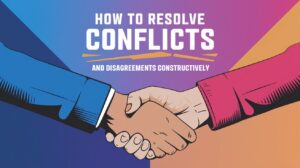Effective communication serves as the backbone of healthy relationships. Be it a partner, friend, or family member, the way we express ourselves can either knit or distance people. In this article, we look at some practical tips to help us communicate effectively in relationships. You’ll be a little wiser on being clear about what you want, listening, and resolving conflicts calmly. We also recommend some insightful books which could further your understanding of this highly important subject.
Gaining Insight into the Importance of Communication in Relationships
The Role of Communication
Communication is not merely an art of words being spoken, but an understanding of emotions and meaning behind them. Effective communication, whatever form of relationship may exist-severely romantic, familial, or platonic-is a bond that emanates from trusting, working out disputes, and thus drawing closer to each other. Lack of clear communication will give birth to misunderstandings leading to frustration, resentment, and detachment.
Common Communication Challenges
Before giving any tips, here are some of the most common barriers to communication:
- Assumptions: This means assuming what the other person may be thinking or feeling without asking.
- Cutting Off Interrupts: This is a common symptom whereby one cuts off the other person in mid-sentence. This can cause misunderstandings and frustrations from the other party.
- Distractions: Choosing external distractions such as phones or TV over the conversation.
- Emotional Reactivity: When your reactions are emotionally heightened instead of you actually listening first before answering.
Understanding such challenges is the first step towards surmounting and improving one’s skills in communication.
Strategies to Communicate Effectively
1. Practice Active Listening
Active listening is a fundamental technique in communicating; the individuals actively focus, understand, give a response, and recollect what the other speaker says. Here is how you practice active listening:
- Make the Speaker Have Your Focus: This indicates that you need to be giving your full attention to the speaker. Remove distractions like phone and the remote television.
- Reflect Back: Repeat, in your own words, what the other person has said, so that you are sure you understand their perspective. For example, “It sounds like you’re feeling hurt because…”
- Don’t Interrupt: Allow the speaker to finish their thoughts before you respond.
Active listening is a way of showing respect, but it also helps to prevent misunderstandings.
2. Be Clear and Concise
Whenever you want to get something off your chest, state it clearly and concisely. Do not give vague replies or beat about the bush. Clearly, this makes sure that the other one gets it precisely without making an error.
- Use “I” Statements: Instead of saying, “You never listen to me,” try “I feel unheard when we talk.” This way, you are expressing yourself without blaming the other person.
- Specificity: If you are having an argument over something, make sure to talk about the particular incident rather than make general comments. Example: “I felt hurt when you didn’t call me back last night” as opposed to “You never care about my feelings.

3. Keep Your Emotions in Check
Emotions play a great role in communication, and if not dealt with accordingly, they tend to give birth to an argument or misunderstanding. Here’s how:
- Take a Break: When you feel overwhelmed, take a minute out to breathe and gather your thoughts before answering.
- Speak Softly: Never raise your voice, no matter how hot the discussion gets. A calm tone will insist on a better conversation.
- Acknowledge Your Feelings: It’s wonderful to express how you feel, but do so without being accusatory or confrontational.
4. Show Empathy
The ability to understand and share the feelings of another human being is called empathy. It is an essential ingredient of successful communication.
- Put Yourself in Their Shoes: This means an attempt to understand the situation from the other person’s perspective. This could perhaps help in responding more sympathetically.
- Validate Their Emotions: You don’t have to agree with the other person’s perspective, but you do want to acknowledge their emotions. For example, “I can see why you’d be upset and that’s okay.”
5. Non-verbal Cues Count
Non-verbal communication involves such things as facial expressions, body language, eye contact, and even tone of voice. All these speak volumes beyond words.
- Make Eye Contact: It shows that you are engaged and interested in what the other person is saying.
- Be Mindful of Body Language: Watch your body language-openness, uncrossed arms, and relaxed posture. Set the other person at ease.
- Match Your Tone to Your Message: Let your tone of voice be at an even pitch with your message. A soft tone can make difficult conversations easier to handle.
6. Set Limits and Respect Them
Establishing limits is crucial for any relationship. Well-established limits prevent misunderstandings and make both parties feel appreciated.
- Letting Them Know Your Limits: Explain to them what you can and cannot put up with. For example, you may say, “I need some silent moments right after work to cool off.”
- Respect Their Limits: Just as you have set your limits, respect the other person’s limits. When they say they need space, grant them that space.

7. Work Through Conflicts Constructively
Conflicts arise in any relationship, but need not dent the relationship provided they are handled properly.
- Focus on the Issue, Not the Person: Attack the problem, not the person. That way, it will build collaboration and not defensiveness.
- Use Collaborative Language: Utterances such as “Let’s find a solution together” invite teamwork in finding ways to resolve conflicts.
- Agree to Disagree: Sometimes it is okay to disagree. Accept each other’s feelings and opinions, thereby avoiding resentment while agreeing to disagree.
8. Make Regular Check-ins
Regular check-ins can inhibit issues from intensifying. These conversations allow a time to talk about your feelings, iron out minor conflicts, and stay connected.
- Set Aside Time: Choose a regular time weekly or monthly in which one can have a check-in conversation.
- Be Open and Honest: Openness and honesty will help you utilize this opportunity and display your emotions and concerns, which are pent-up inside.
- Listen and Respond: Communicate by saying what is on your mind, take turns, and hear each other out so that both voices can be heard.
Book Recommendations for Improving Communication in Relationships
If you want to learn how to communicate better, here’s a list of additional books which could help you improve your communication:
- “Nonviolent Communication: A Language of Life” by Marshall B. Rosenberg
This is a life-changing book concerning communication, really focusing on empathy, truly listening, and finding a way to express your needs without blame or judgment. - “The Five Love Languages: The Secret to Love That Lasts” by Gary Chapman
Chapman’s book looks at the various ways people like to express and receive love. Knowing your partner’s love language can go a long way in making your communications much smoother and improving your relationship satisfaction. - “Crucial Conversations: Tools for Talking When Stakes Are High” by Kerry Patterson, Joseph Grenny, Ron McMillan, and Al Switzler
This book gives very useful tools on how to conduct very difficult conversations with ease and ensure that both parties will be heard and their dignity maintained. - “Hold Me Tight: Seven Conversations for a Lifetime of Love” by Dr. Sue Johnson
Dr. Johnson, the developer of Emotionally Focused Therapy, provides insight into how to communicate in a manner to strengthen emotional bonds in romantic relationships. - “Difficult Conversations: How to Discuss What Matters Most” by Douglas Stone, Bruce Patton, and Sheila Heen
It dissects the anatomy of hard conversations and gives ways to manage them with poise and empathy.
Conclusion
Good relations are built and nourished by effective communication. You may develop high-quality interactions by means of active listening, clear comprehension, proper emotional arousal, and building empathy. Remember that one’s communication skill can always be developed further; if you think it necessary, read the suggested books to move along and continue improving your communication. The relationships in your life will be stronger and more enriching with these tips.








1 thought on “Tips for Effective Communication in Relationships”